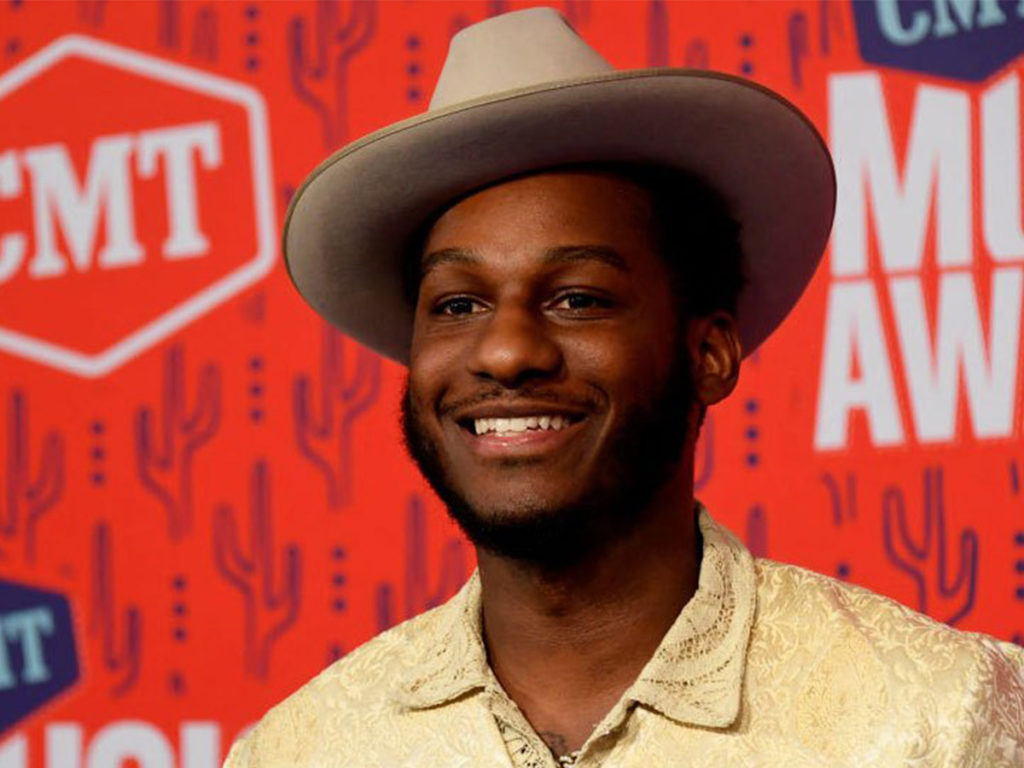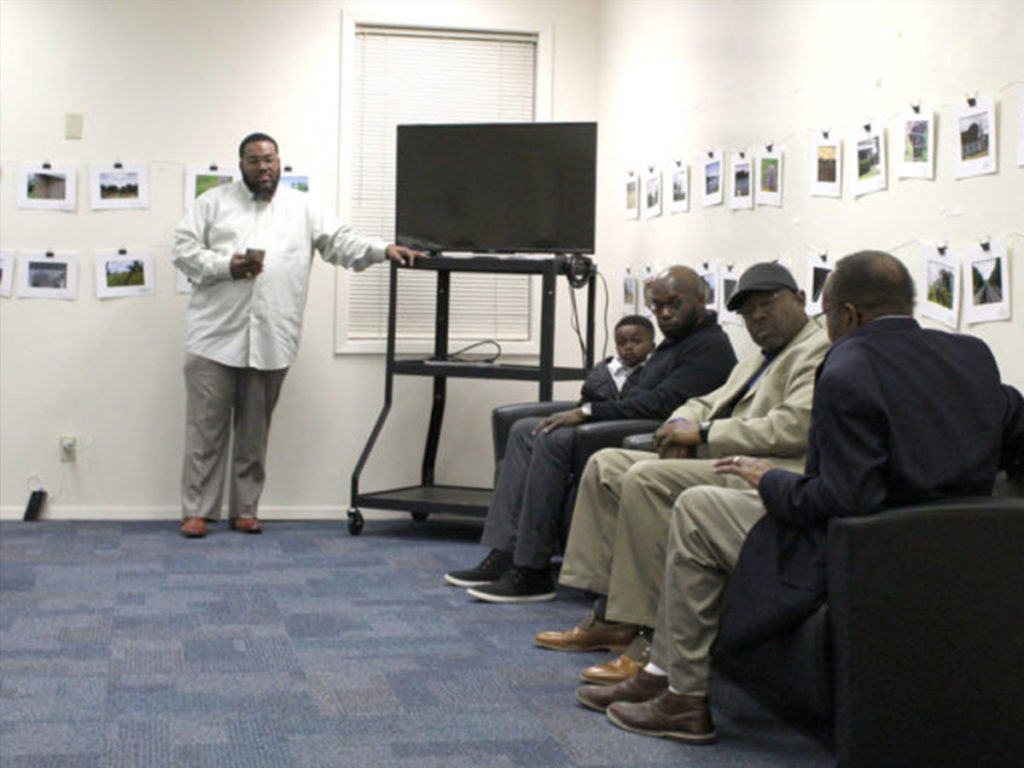Fort Worth native Leon Bridges’ new music video for his single “Sweeter” should resonate with citizens across Texas for its ability to capture the unique imprint of African Americans like myself and many others. Bridges tweeted, “A celebration of blackness with my Southside Fort Worth family,” as a caption for the video’s trailer. The visual itself is a celebration, but also a very timely reminder that the men featured in his video—all of whom are African American—are people, something that seems to get lost in the recent string of videos highlighting police brutality.
Following the murder of George Floyd, Bridges released the song “Sweeter.” The lyrics are an indictment on the continued state of racism across the country. “Somebody should hand you a felony,” Bridges sings, “‘Cause you stole from me, My chance to be.” The lyrics remind us of what many people believe about the Floyd case: it was unjustifiable and inexcusable. The 8 minutes and 46 seconds that officer Chauvin of the Minneapolis Police Department knelt on Floyd’s neck until he eventually killed him is worth retribution at the hands of the state.
Even beyond the Floyd murder, the inherent individual and systemic racism that pervades cities across America rationalizes Bridges’ reasons to lament his existence in his country, “Why do I fear with skin dark as night?” The wealth gap alone speaks to the years worth of systemized segregation, but Bridges’ fear extends beyond just economic inequality.
As someone who shares residence with Bridges in Fort Worth, I know it’s hard for our white neighbors to understand the type of fear Bridges sings about. This is a place where we are constantly navigating mostly white spaces at work or the grocery store, and are constantly on guard about how our mannerisms might be perceived by white people. But just because you may not understand what it’s like to not “feel peace” with “judging eyes” staring at you when you walk in a coffee shop or while bird watching or playing video games in your house with your nephew, doesn’t mean such intrinsic turmoil doesn’t exist. It just means it doesn’t exist for you.
The “Sweeter” music video is a visual entreaty to invite others to gaze deeper at not only the issues that affect us, your black brothers and sisters (who are skeptical your vague sentiments of #BlackLivesMatter are but your latest social trend), but also to see and feel deeply about a world that oftentimes feels like it was not made for us.
Pointing out such feelings are not simple means to garner power through victimization. It is a hope “for a life more sweeter,” as Bridges renders on the chorus of “Sweeter.”
Bridges’ video, however—directed by fellow DFW native Rambo Elliott—shows that we, black people, are more than victims. We are your neighbors. Yes, we are cool. And we undoubtedly provide a richness to American culture that would leave much to be desired if we were to remove from this land.
When I spoke with Elliot, she said she realized this and wanted to use portrait-like closeups of Bridges’ and his friends and family to show, not only the contagious culture often featured in African American arts, but also the humanity behind such art. Elliot does a great job exhibiting the distinct style and grace cascaded on the face of each man. It is expressed in the way they wear their hair and don their clothes, and in how they bob their heads to the beat and sway in unified dance.
So when we see Bridges comfortably cruising down the streets of Southside Fort Worth in a topless old school white slab packed with his friends and 808s thumping it’s a statement in itself. These are often the scenes and sounds of black men, announcing their unashamed presence to whoever is nearby, perpetually insisting to be seen—not in a way that exhibits self-absorbed pride as much as it does their personhood. But because black men are still more likely to be pulled over by police in cities like Fort Worth, that scene alone is scary, as it could give reason to be stopped on reason of “suspicion.”
So before viewers can get lost in the trance of style and bold self-assurance black people often display, Rambo makes sure viewers see them and not just their culture. African American music, dance, and style are often appropriated (or stolen to put it bluntly). From hip hop and patents, to hairstyles and TikTok videos, our culture is often used and not credited for what we attribute to American culture as a whole. So Elliott makes sure to detail the humanness, the soul, behind the eyes of each black man, forcing viewers to look at each one and see a person.
When we look close enough into the eyes of our neighbors we can see a reflection of ourselves literally and figuratively. And this is what caused America to wake up when we saw George Floyd’s murder. Once we saw Floyd not as merely a black man, but a person, we began vocalizing an unprecedented need for racial justice, because we did not just see a “black man” or a criminal (as some have tried to erroneously point out). We saw ourselves. Everyone was forced to look in Floyd’s eyes and watch him pass from life to death and see a piece of ourselves fade away.
In this way, Elliott forces everyone to see both complexion and humanity in each black man’s face in the “Sweeter” music video. The only missing piece of Bridges’ video are the faces of black women who are more often the hidden figures of our society. Although black women are present in the video, they aren’t highlighted the way the men are. I don’t believe the intention was to ignore them, but as Kathryn Freeman wrote for Christianity Today, “Black women matter to God,” and so they should matter to the rest of the world. This is a reminder that we must not forget our black sisters and the grief they are often left to burden, as Bridges’ confesses in his song: “The tears of my mother, rain, rain over me.”
More broadly, the “Sweeter” music video is a visual aid depicting the sacred beauty of black people across America. Hopefully it helps us see and celebrate our differences while creating a desire to close the gaps that keep us so arcanely separated.
Timothy Thomas is a full-time public school teacher and coach. He is also a part-time staff writer for Christ and Pop Culture Magazine. He lives in Fort Worth, Texas with his wife, Angela. He is devoted to encouraging, informing, and challenging the culture at-large.
His socials for twitter and instagram are timothyt_t
Image Courtesy of: Rambo Elliott (@rambo)
“This powerful blog post is a personal message of struggle and hope reflecting the personal experiences and views of the author. Community Frontline is not a religiously or politically affiliated organization. Anyone willing to serve can participate in the work of Community Frontline, regardless of creed, political views, or religious affiliation.”


